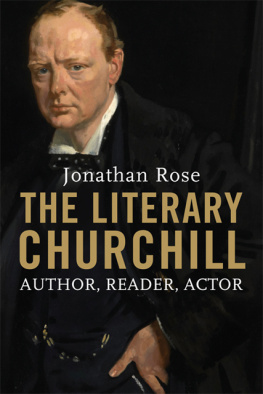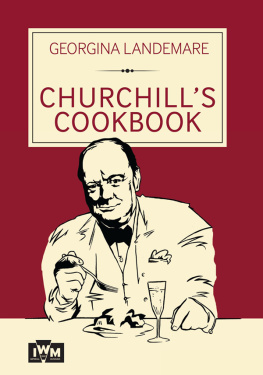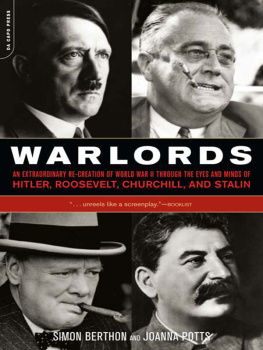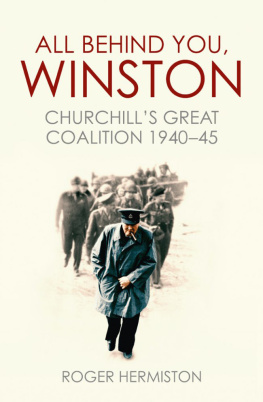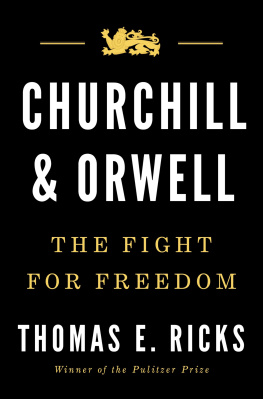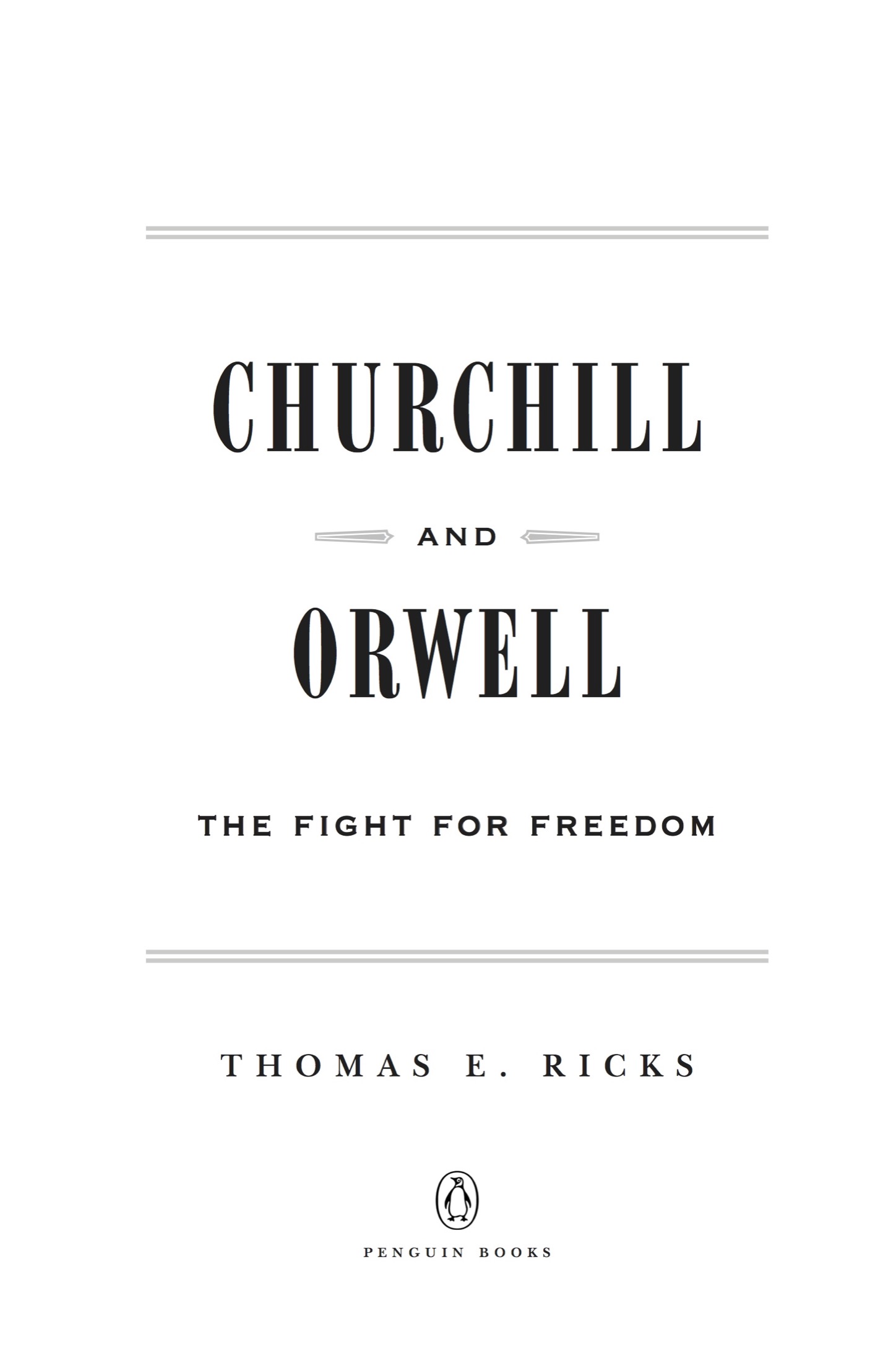CHAPTER 1
THE TWO WINSTONS
O n December 13, 1931, a fifty-seven-year-old English politician, still a member of Parliament but quite unwelcome in his own partys government, stepped out of a taxi on New Yorks Fifth Avenue. He was in New York to begin a speaking tour in an attempt to recover some of the small fortune he had lost in the stock market crash two years earlier. Being English, and perhaps distracted by his troubles, he looked the wrong way down the avenue, and did not see the automobile that, traveling at about thirty miles per hour, knocked him to the pavement and dragged him for a spell, cracking some ribs and slashing open his scalp. Had he died, he would be remembered today by a few historians specializing in early twentieth-century British history. But he did survive. His name was Winston Churchill.
Almost six years later, on May 20, 1937, another Englishman awoke before dawn and moved out of his uncomfortable quarters in a trench on the front lines of the Spanish Civil War in northeastern Spain, not far south of the Pyrenees Mountains. Though serving as a soldier, he really was a writer, a minor author of mediocre novels that had not been selling well. He considered himself a leftist, but in his latest work, in which he had turned to journalistic sociology, studying the poor of England, he had caused a minor fuss and perhaps lost a few friends by criticizing socialists. Still, in Spain he was serving as a member of the progovernment socialist forces of the Spanish Republic. He was a tall man, and as he moved along the west-facing trenches to check on the members of his squad, his head was silhouetted by the sun to the east, rising behind him. A Nationalist sharpshooter about 175 yards away spied him and fired a copper-plated 7mm bullet. It was a well-aimed shot, sending the bullet through the base of the Englishmans neck, where it just missed a carotid artery. Stunned, he fell to the ground. He knew he had been hit, but in his shock could not tell where. Informed that he had been shot through the neck, he composed himself to die within minutes, because he had never heard of someone surviving such a wound. Had he expired then, he would not be remembered today except perhaps by a few literary specialists in minor mid-twentieth-century English novelists. But he did not die. His name was Eric Blair, but his nom de plume was George Orwell.
On the surface, the two men were quite different. Churchill was more robust in every way; born twenty-eight years before Orwell, he outlived him by fifteen years. But in crucial respects they were kindred spirits. In their key overlapping years in the middle of the century, the two men grappled with the same great questionsHitler and fascism, Stalin and communism, America and its preemption of Britain. They responded with the same qualities and toolstheir intellects, their confidence in their own judgments even when those judgments were rebuked by most of their contemporaries, and their extraordinary skill with words. And both steered by the core principles of liberal democracy: freedom of thought, speech, and association.
Their paths never crossed, but they admired each other from a distance, and when it came time for George Orwell to write 1984 , he named his hero Winston. Churchill is on record as having enjoyed the novel so much he read it twice.
Despite all their differences, their dominant priority, a commitment to human freedom, gave them common cause. And they were indeed vastly dissimilar men, with very different life trajectories. Churchills flamboyant extroversion, his skills with speech, and the urgency of a desperate wartime defense led him to a communal triumph that did much to shape our world today. Orwells increasingly phlegmatic and introverted personality, combined with a fierce idealism and a devotion to accuracy in observation and writing, brought him as a writer to fight to protect a private place in that modern world.
One hazard in taking a dual approach to the two men is that Churchill is such a loud and persistent presence. Look at any key event of the 1940s and he is there, participating in it, or speechifying about it, and then some years later, writing about it. Debating Churchill was like arguing with a brass band, a member of a British Cabinet once grumbled. The political philosopher Isaiah Berlin observed that Churchill saw life as a pageant, with himself leading the parade. I must say I like bright colours, Churchill once wrote. I cannot pretend to feel impartial about the colours. I rejoice with the brilliant ones, and am genuinely sorry for the poor browns.
Together in the mid-twentieth century these two men led the way, politically and intellectually, in responding to the twin totalitarian threats of fascism and communism. On the day that Britain entered World War II, Churchill stated, It is a war, viewed in its inherent quality, to establish, on impregnable rocks, the rights of the individual, and it is a war to establish and revive the stature of man. Orwell expressed the same thought in his plainer style: We live in an age in which the autonomous individual is ceasing to exist, he fretted two years later.








